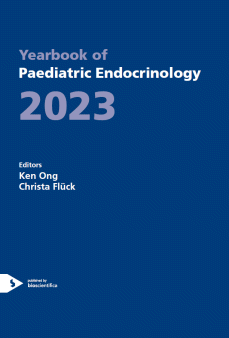9. Obesity and Weight Regulation
Genetic Obesity and Genetic Risk Score
ey0020.9-7 | Genetic Obesity and Genetic Risk Score | ESPEYB20
9.7. Rare antagonistic leptin variants and severe, early-onset obesity
JB Funcke , B Moepps , J Roos , J von Schnurbein , K Verstraete , E Frohlich-Reiterer , K Kohlsdorf , A Nunziata , S Brandt , A Tsirigotaki , A Dansercoer , E Suppan , B Haris , KM Debatin , SN Savvides , IS Farooqi , K Hussain , P Gierschik , P Fischer-Posovszky , M Wabitsch
ey0020.9-8 | Genetic Obesity and Genetic Risk Score | ESPEYB20
9.8. A National Multicenter Study of Leptin (LEP) and Leptin Receptor (LEPR) deficiency and systematic review
O Besci , SN Fırat , S Ozen , S Cetinkaya , L Akın , Y Kor , Z Pekkolay , S Ozalkak , E Ozsu , SS Erdeve , S Poyrazoglu , M Berberglu , M Aydin , T Omma , B Akinici , K Demir , EA Oral
ey0020.9-9 | Genetic Obesity and Genetic Risk Score | ESPEYB20
9.9. Genetic risk score enhances the risk prediction of severe obesity in adult survivors of childhood cancer
Y Sapkota , W Qiu , SB Dixon , CL Wilson , Z Wang , J Zhang , W Leisenring , EJ Chow , S Bhatia , GT Armstrong , LL Robison , MM Hudson , A Delaney , Y Yasui




